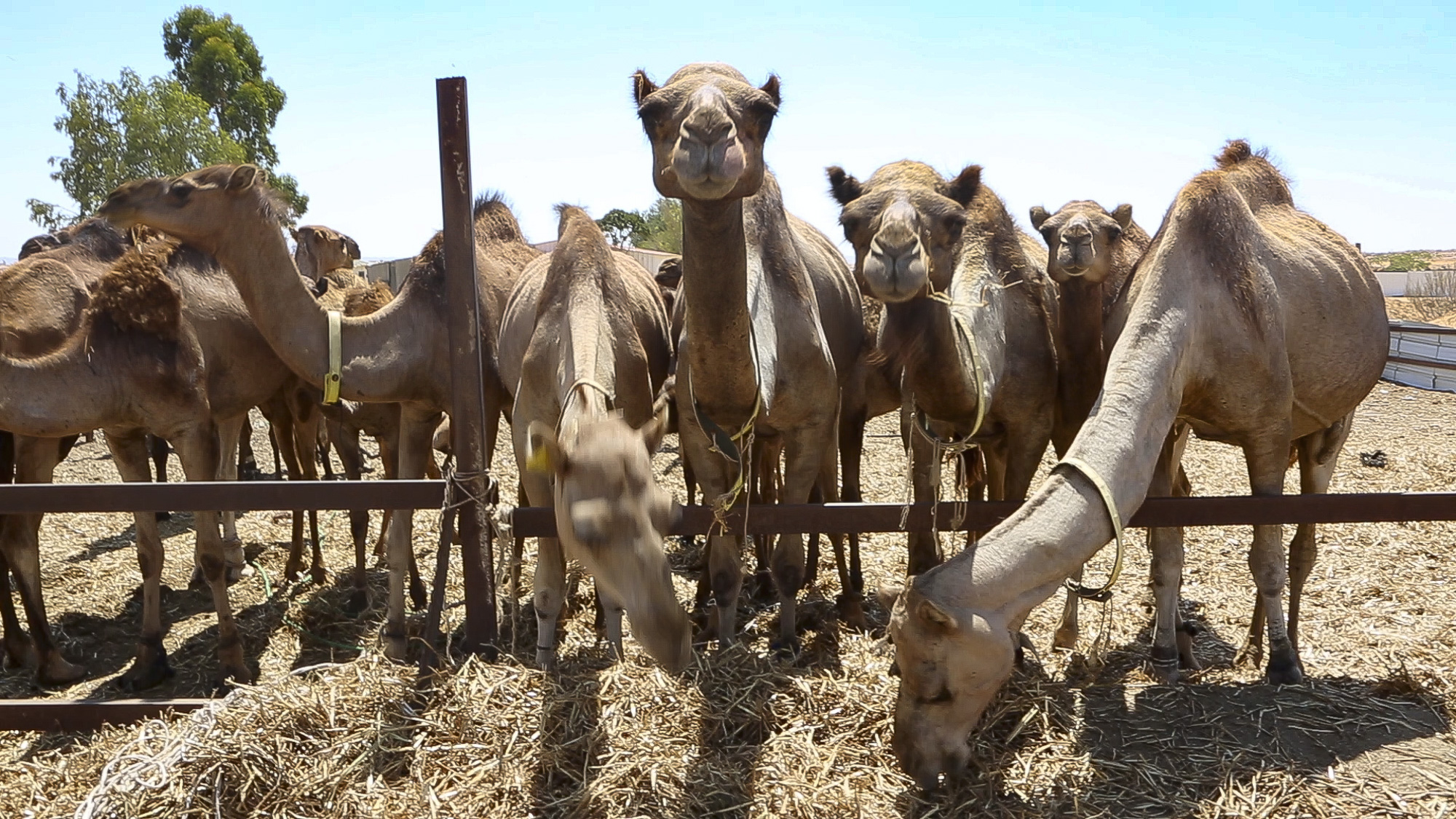Adalah demands Israel end its discrimination against Bedouin camel herders
Adalah – The Legal Center for Arab Minority Rights in Israel sent two letters in August 2019 demanding Israel end its systemic discrimination against Bedouin camel herders in the Naqab (Negev) region.
Adalah's letters, sent to Israel's Agriculture Ministry and the Israel Land Authority, concerned grazing rights and identification chips in the context of camel herding, which is a traditional practice among the Palestinian Bedouin citizens of Israel – albeit not amongst Jewish Israelis – in the Naqab.

Camels belonging to a herder in a Bedouin community in Israel’s southern Naqab region. (Photo by Mati Milstein)
The first letter concerned the state’s allocation of grazing land, from which camel herders are currently excluded due to the animal's official classification as a “non-farm animal”. Although camels are traditionally used by the Bedouin for agricultural purposes, to produce both milk and meat, they are excluded from the category of “farm animals”. This designation is broad and, in addition to conventional livestock such as sheep and cows, it includes llamas, and even horses used for therapeutic purposes. The designation of “farm animal” qualifies ranchers and herders for the allocation of state land for grazing, as well as various subsidies, including for potable water.
In the letter, Adalah called on the Israeli Agriculture Ministry's Grazing Authority to re-categorize camels as “farm animals” in order to allow Bedouin camel herders access to grazing land and related subsidies – on an equal basis with non-Bedouin farmers.
The second letter addressed the subject of regulations that Israel enacted in 2018 requiring camels to be fitted with electronic subdermal chips, based on the claim that they roam freely and cause traffic accidents, and their owners therefore need to be easily traceable.
The Bedouin are opposed to the insertion of subdermal chips because they fear that they will be used primarily in order to sue and fine Bedouin herders whose camels wander onto roads and cause car accidents. Their opposition is given particular weight given that Bedouin herders are denied access to designated grazing lands due to the camels' arbitrary and discriminatory designation as “non-farm animals”, and herders are therefore compelled to let them roam freely.
The chips can cause harm to camels’ health and their use is also banned in animals intended for human consumption – as are camels. Camels are the only livestock for which a subdermal chip is required; all other types of farm animals and livestock may be marked with alternative methods such as ear tags.
Adalah demands Israeli authorities amend or cancel the regulations requiring camels to be chipped.
Israeli authorities have failed, to date, to respond to the letters.















